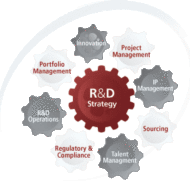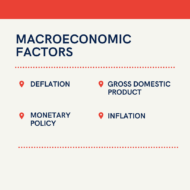Posted by Managementguru in Marketing, Principles of Management, Project Management, Strategy, Technology
on Mar 25th, 2014 | 0 comments

Research and Development – Strategic Key for Competitive Advantage Product Innovation and Process Improvement: With the increasing pace of liberalization and ferocity of competition in the corporate business world, it is mandatory for the firms to invest in research and development activities to sustain in the market. In most of the developing countries, scant attention has been paid to research and development activities. A survey indicates that countries like Japan and United States of America spend 2.8 percent of their Gross National Product on R and D, while it is a mere 0.9 percent of the Gross Domestic Product in the case of some Asian countries. What role does research & development play in the industry and economy? Why it is important for the developing countries to invest more on R and D? In spite of the tax rebate offered by most of the governments for R and D, why industries don’t contribute much to indigenous research? Global Competition: It becomes difficult for business organisations to compete in national and international markets both on quality and cost fronts, primarily because of absence of strong base in science and technology. Third world nations are used to buying technology from developed nations, that make them dependent and technology starved. Limited resource is another problem faced by these business firms, the allocation of which becomes difficult owing to rising costs. Invasion of Multinational and Trans national Giants: Another serious aspect to be considered is the invasion of multinational and transnational giants in every sector due to liberalization, globalization and privatization policies of the developing nations. This leads to panic in the industry, as a result of which, the business firms either go for forged alliances or infuse large amounts of funds into R and D activities hurriedly, both of which is a futile exercise to protect themselves from the onslaught of transnational companies. Science and Technological Advancement: The wiser move for the business firms to withstand the competition on an international level, would be to build their empires on a sustainable basis, by honoring the scientific and technological efforts. A thorough knowledge of all the research activities progressing around the world proves useful in managing their activities and operating with limited resources. This demands a long term plan that will support, strengthen and nurture the specified area of science base selected for research and development. Research Management: A well devised research management programme will help the business firms to formulate short and long term technical plans that aid in the research programme. It is very important for a country to encourage the budding population to become more research oriented, that will help the nation prosper in terms of science and technology, besides which, it also helps in the growth of one’s own economy. Chanakya’s 7 Secrets of Leadership The Research and Development strategic management lays emphasis on formulating plans, that support the short and long term objectives of a business firm, by employing innovative minds in the process and periodically reviewing and restructuring strategies in the light of changing demands of the society. The focus of an R and D manager should be on appraisal of technological and competitive environment, assessment of corporate strengths and weaknesses and making strategic decisions, while formulating R and D...

Posted by Managementguru in Economics
on Feb 16th, 2014 | 0 comments

Science of Macro Economics: Macroeconomics is the branch of economics that studies the behavior and performance of an economy as a whole. The part of economics concerned with large-scale or general economic factors, such as interest rates and national productivity. The sales and profit quotient of business enterprises in a market is dependent on the vigor of the overall economy to a greater extent. During expansion, the real GDP can accelerate to 4 to 5 % a year and during recessions the pace of growth declines for an extended period. The overall economic growth is subject to many cyclical fluctuations and the reasons for change in the pace and pattern of economic scenario still remains a mystery. Macroeconomic Concept What are the fundamental concerns of macro economics? Business Cycles: Business cycles are rhythmic patterns of expansion and contraction due to inflations and recessions. It is still an intriguing factor that unemployment persists even during times of expansion and production of goods and services fall down during cyclical downturn making millions of people lose their job. If macroeconomics can find the appropriate solution to these problem situations, better will be the prospects of many people’s lives and fortunes. Monetary and fiscal policies should be formulated in the light of reducing the severity of business cycles. The purpose of monetary policies is to stabilize the prices by managing the expansion and contraction of the volume of money in circulation, full employment and stability of exchange rates. Fiscal Policy: Fiscal policy is linked with the government’s stand on public revenue, expenditure and debt. The idea is to reduce inequalities in income and wealth and develop a socially optimum investment pattern. Resources available in a country influence the kind of investment pattern. Developing countries like India has its focus of activity centered on telecommunication and power generation through information technology and alternate fuel resources. Availability of skilled labor is an additional plus in countries like India and China and many countries prefer to outsource their business processes to offshore companies present here. Tax Structure: Tax structure is a source of revenue generation aimed at economic stability. During inflation, an increase in tax rates will reduce the buying power of people thereby reducing the prices in the economy. A reduction in tax rates during depression will encourage economic investment and consumption. Generous subsidies and reforms in industrial policies alone cannot bring about the desired growth in the economy. A nation should aspire to increase its growth ratio by providing the necessary infrastructure. Economic scholars of each nation have to vigilantly analyze the previous patterns of business cycles for the benefit of the society and this kind of review will lead to dependable forecasts on the basis of which proactive measures could be devised. Note: What is VAT: VAT is a multi-point levy where the tax paid on local purchases from the registered dealer can be set off against the tax payable on the sale of goods, other than special...




